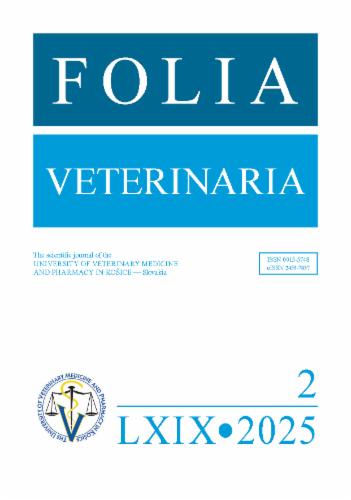Sero-epidemiology of Coxiella burnetii infection in domestic ruminants in the prefectures of Beyla and Mamou, Guinea
Published Online: Jun 25, 2025
Page range: 43 - 55
Received: Apr 28, 2025
Accepted: May 19, 2025
DOI: https://doi.org/10.2478/fv-2025-0017
Keywords
© 2025 Mama Agnès Tea et al., published by Sciendo
This work is licensed under the Creative Commons Attribution-NonCommercial-NoDerivatives 4.0 International License.
This study determined the seroprevalence and identified risk factors for exposure to
